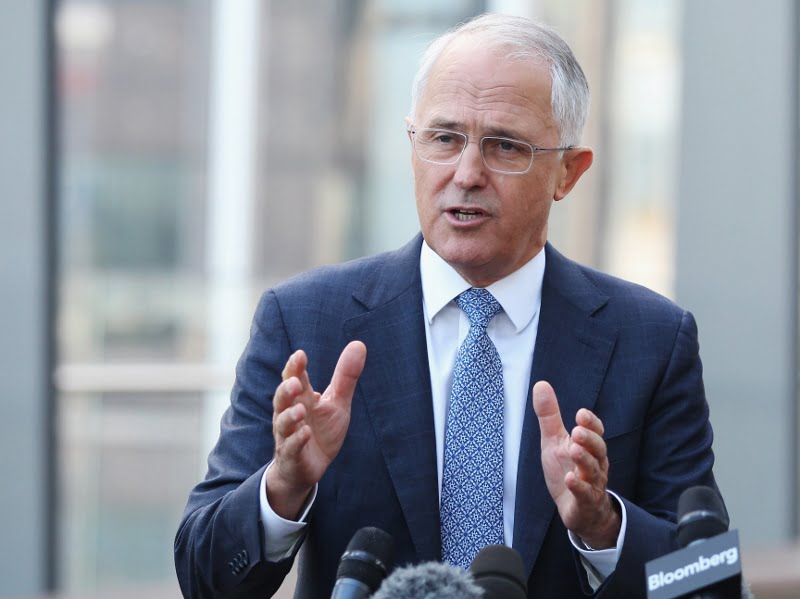Malcolm Turnbull’s singular achievement on the Abbott frontbench was the pulling apart of the National Broadband Network, and like Dr Frankenstein, putting together various bits and pieces to create a network monster.
The result is about to come into sharp focus as a potentially major election issue.
News Corporation, the NBN’s leading critic and 50 per cent owner of Australia’s monopoly pay TV business Foxtel, last week began a fresh and pre-emptive assault on any initiative by Labor to present the electorate with any plan to improve network speeds (in The Weekend Australian on May 7).

News’ problem has long been that Foxtel is locked into an extremely expensive contract with Telstra to use its ageing HFC network until 2020.
The company is using its influence to try to delay the roll out of universal high-speed broadband in order to cruel growing competition from watch-when-you-want streaming services like Netflix to its (generally awful) legacy curated channels.
Even Telstra wants to get out of the joint-venture, as the company now finds that it is competing with itself.
As InnovationAus.com has noted before, the NBN has been fraught and mistakes have been made from the start. But Mr Turnbull has succeeded in compounding these mistakes with his unstable, unpredictable creation.
As it comes to the end of its term in office, despite charging into government with promises to cut the networks cost and deliver a faster speeds more quickly (including an undertaking to provide business with fibre connections) the Coalition has dropped the ball on all counts.
Anecdotally, we have heard some stories where NBN speeds are not as fast as the ADSL technology Telstra has had in place for the past decade or so.
Under the Coalition, headline costs have gone up. In fact they have risen from $29 billion to (a still partially unfunded) $53 billion or more, and revenues numbers have come down due to the simple equation of slower speeds, lower prices.
This has seen the internal rate of return halve from 7.1 per cent under Labor to 2.7 per cent or a bit more, maybe, in the Turnbull plan. At the epicenter of Mr Turnbull’s meddling, was the dud deal to hand Telstra a multi-billion dollar cheque for its ageing copper network, replete with asbestos clad pits.
Talk to engineers who are involved in rolling out the network and they will shake their heads when the subject of the copper network is brought up.
The maintenance bill is now well beyond initial estimates, put in place by a government that didn’t even do taxpayers the good governance courtesy of having copper network independently audited before they setting fire to hard-earned tax dollars.
Mr Turnbull was also caught in the classic Telstra trap of delay via endless negotiation, a rookie error to be sure.
Anyone who has watched the company since competition began would know this was tactic 101. More egregiously, by changing the terms of the deal, Mr Turnbull gave the company its second bite at that cherry (having also forced Labor into a prolonged negotiation too.)
Telstra got its two ministers, or two Alan Bonds, as it were.
Now, NBN chief Bill Morrow is trying to stealthily creep fibre ever closer to the home in a bid to avoid as much copper as possible, without actually saying this is what he’s doing. Taxpayers are being deceived again.
In a political sense, there hasn’t been a huge public groundswell of people shouting about the NBN. But in an achingly long election campaign, there is plenty of time for this issue to gain traction
Already business people in suburban and regional areas, as well as councils, are simmering as Mr Turnbull’s “innovation nation”, stumbles at the first, basic hurdle: connectivity.
It is hard to think how this hole in his tech and innovation election platform could possibility be any larger.
During the last election, Kevin Rudd’s abysmal campaign dropped the ball on the NBN, and Shorten left it there for too long, allowing Mr Turnbull to rewrite history. He saw the free kick and took it.
Communications Minister Mitch Fifield appears to be adopting the high risk, small target approach so far. To date, he has but offered us this zinger, describing Labor’s policy as “ill-conceived and shambolic broadband policy devised on a drink coaster”.
Perhaps. But the very same accusation can be levelled against his predecessor.
Despite its three years in power and promises of fast-tracking the NBN, Australia’s Frankenstein NBN is not national, it’s not broadband and it’s most certainly not a single network.
In the hands of clever campaign managers, that fact could be a damaging message to the government and one that its creator, the PM certainly doesn’t want resonating in the electorate.
Do you know more? Contact James Riley via Email.

